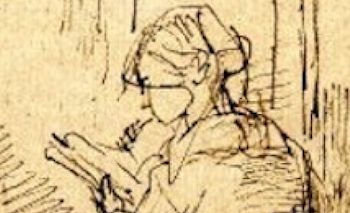
Image by Harish Sharma from Pixabay
“Miss Smith,” Alex kept tapping me on the shoulder. His was a gentle tap, this glasses-wearing, learning-loving student whom I adored. Teachers can’t let on they have favorites, but Alex was a student I will always remember, not for his orneriness nor his challenging behaviors, but for his love of learning.
I was signing Yessenia’s vocabulary challenge sheet as the bus jostled us around, but Alex’s finger-tapping caused me to turn to face this meek student sitting in the middle of the bus, where quieter students generally sat.
“Yes, Alex,” I gave my full attention.
“I wonder what types of kinetic energy we’ll see today at the Science Fair.”
“Oh, Alex,” I praised, “That is a great sentence using kinetic energy. But I’m going to challenge you to try again. How can your sentence help me understand that you know what kinetic energy is? Remember, in order to own that phrase, your words have to demonstrate you understand it.”
Eager to adjust his sentence, Alex sat back in his seat to think, and jolly, chubby Miguel began the shoulder tap-tap-tapping and the “Miss Smith”-ing.
What a treasured memory. My class of energetic fifth graders were on a rare field trip to the Colorado State University Science Fair. The fair was designed to supplement fifth-grade state science standards for forms of energy, and my class had been preparing for weeks. Anticipation overflowed the uncomfortable bench seats of the big yellow school bus as we traversed down the highway.
It was not a bus ride teachers dread, where students feel the freedom and temptation to misbehave. No, this bus was full of learners, eager to see science in action. But my pupils were unique in that they were all from families with Spanish as their home language and English as a second language. The official term to describe them is English Language Leaners (ELLs).
Like any teacher of English language learners, I knew vocabulary instruction was integral to deepening their conceptual knowledge. I had created a vocabulary challenge, through which a student had to prove they owned a term by using it accurately and descriptively in a sentence. The sentence could not merely use the term, but needed to demonstrate understanding. The sentence could be spoken or written, and points were awarded for students who were able to authentically prove they owned a term. (NOTE to all current teachers: I would relish sharing the entirety of this instructional activity with you if interested. ? )
“Do I own the word now?” Alex asked after he’d reconstructed his sentence. Oh, how he beamed when I allowed him to write down kinetic energy in his column of owned vocabulary terms.
Oh, how I beam inside now as I recall that cherished memory.
***
The unfolding of knowledge is a glorious thing for any teacher/parent/minister/manager – all in the role of instructing. What fulfillment there is in that “aha” moment when eyes light up because something finally makes sense. Or when a student finally links one piece of knowledge to another, synthesizing the connection to deepen their comprehension of the concept. Teaching and learning moves far beyond memorization of facts or rote drilling of information. Depth of understanding can never be achieved using techniques of regurgitating definitions, only to forget them soon after.
The true reward of teaching comes when students demonstrate application of their learning.
On the other hand, the student who regularly shouts out, “I don’t get you” is a challenge that can mystify and frustrate a teacher (oh, how I dreaded that often-heard phrase). Ever more difficult is the student who simply checks out during instruction, staring into space with dull expression. These learners are extremely hard to reach; and the struggle to understand how to make knowledge clearer to them is real.
The learning process is complicated and complex. The joy of teaching involves exploration of what strategy works for every student. Each one learns differently, to be sure; but the master teacher is one who can discern what each individual needs to fully grasp a concept.
***
The master teacher! Hard as I tried, I never became one. But for most of my life, I have known The Master Teacher—His name is Jesus Christ. He relishes in the unfolding of insight and the depths of knowledge that can be reached when a soul genuinely seeks revelation.
Psalm 119:130 explains this joy, “The unfolding of Your words gives light; It gives understanding to the simple” (NASB). Other versions use the term childlike instead of simple; but regardless, the concepts being addressed here are revelation and understanding! In a world where doubt and confusion abound, don’t we need deeper, keener insight?
When we sit at Jesus’ feet to learn from our Master Teacher, the concepts may be different than instruction in typical classrooms as described above. What insight is unfolded? The words of Christ that speak life and truth into every circumstance and realm of being. As understanding is revealed, we gain a deeper sense of the spiritual. We learn about the life of redemption lived out when the spiritual realm interacts with the natural realm.
What unfolds to our hearts and minds is: the blanket of assurance, the tablecloth of wisdom, the towel of provision and the tent of protection, just to name a few. The very canopy of truth supplies a covering that envelops and guides our souls. And as we look out from under this canopy, we see light in the darkness around us. We see the straight path leading to the glorious destination of eternity with our Creator. The depth of our learning imparts a broader perspective that helps us see beyond the tangible. We are equipped to shed the bulky baggage of sin and weakness that’s trapped us, buried in doubt, fear, failure, and confusion. We can look back upon our journey in joy and look forward to the discoveries that lie ahead as we walk in the application of learning.
Yes, the unfolding of God’s word—God’s truth—brings plenty of eye and mouth opening “aha” moments as the depths of comprehension take root. When we finally get why God allowed a particular circumstance or season to occur. When we make the connection from prayer to healing. When we grasp the importance of confessing and repenting of our sin(s) —what was entrenching us in a muddy bog of yuck. When we realize how good and glorious Almighty God is and how amazing is His plan for humanity’s redemption.
This unfolding of wisdom comes first and foremost from our choice to have relationship with our Creator through His son, Jesus Christ. Our prayerful conversations occur as the Master Teacher gives us the individual attention we desperately need. This unfolding is fostered by meditating upon the word of God (scripture).
But revelation rarely comes to those who don’t seek it. If we dig in our heels and harden our hearts to the insights of faith, wisdom will not unfold easily. Our unwillingness to face the simpleness of God’s redemption plan often trips us up and we are left complaining, “I don’t get you, God. It can’t be this simple!”
The Master Teacher will never give up, however. He knows us better than we know ourselves, and He will find a way to motivate us away from our stubborn refusal to explore, to investigate. He urges us to come have lunch with Him so He can show us more and explain further. He waits for us after school and helps us better understand our part of the homework. He chunks the tasks of learning into parts that make sense, one at a time. He disciplines our unruly behaviors, knowing we can make better choices. He gives us hands-on experiences that make the learning applicable and real. He knows how to reveal and unfold knowledge at just the right moments.
As students, we look to Him and open our minds and hearts to receive instruction.
***
Alex learned about kinetic energy that day so many years ago. He saw firsthand how energy is created simply by movement. He witnessed amazing laws of cause and effect, of transformation and transmission. He used the tools of observation, data collection, hypothesis, and verification. The science of energy took root in the deep recesses of his mind as he applied his background understanding to real life. Knowledge unfolded, and this lover of learning moved forward to the next revelation.
***
POST NOTE:
A common technique classroom teachers use when their students lose focus is called “Call and Response”. The teacher rehearses a phrase that he/she voices to the entire class to garner their attention (the call). In response, the class calls out a different, but related phrase (the response). Witnessing the effectiveness of this technique can be impressive. A few examples:
Teacher calls: “Class, Class!”
Students respond: “Yes, Yes!”
Teacher calls: “Hocus Pocus!”
Students respond: “Time to focus!”
Teacher calls: “Hands on top”
Students respond: “Everybody stop”
Our Master Teacher issues similar calls to us all the time. He has a plethora of calls, and each one should garner our response, shouldn’t it?
Jesus calls: “Come to me…”
We respond: “You’ll give us rest.”
(Matthew 11:28-30)
Jesus calls: “Behold I stand at the door and knock…”
We respond: “We open the door so we can dine with You.”
(Revelation 3:20)
Jesus calls: “Let not your heart be troubled…”
We respond: “We believe in God, we believe in You.”
(John 14:1)
Jesus calls: “I’ve come that you might have life…”
We respond: “That life is ours in abundance.”
(John 10:10)

